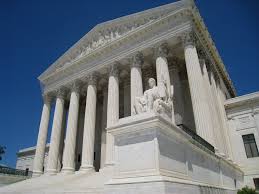U.S. Supreme Court takes up NCAA appeal over benefit limits for college athletes
The U.S. Supreme Court on Wednesday agreed to hear a bid by the National Collegiate Athletic Association to defend its limits on education-related compensation for college basketball and football players.
Reuters | Washington DC | Updated: 16-12-2020 20:32 IST | Created: 16-12-2020 20:14 IST
The U.S. Supreme Court on Wednesday agreed to hear a bid by the National Collegiate Athletic Association to defend its limits on education-related compensation for college basketball and football players. The justices took up an appeal by the NCAA, the major governing body for U.S. intercollegiate sports, of a May decision by the San Francisco-based 9th U.S. Circuit Court of Appeals that deemed the organization's rules anticompetitive under a federal law called the Sherman Antitrust Act.
The justices also agreed to hear a related appeal brought by major college sports conferences including all of the big-money so-called Power Five conferences: the Big Ten, Southeastern Conference, Atlantic Coast Conference, Big 12 Conference and Pac-12 Conference. The case involves students who are players in the highest-level of college sports: NCAA Division I men's and women's basketball and those in the Football Bowl Subdivision. Football and basketball represent the major revenue-generating sports at the college level.
The case does not focus on the contentious issue of pay for college athletes. It concerns only the non-cash payments related to education, including benefits such as computers, science equipment and musical instruments. The 9th Circuit found that the NCAA could limit non-education-related compensation. Lawsuits filed by college athletes in 2014 and 2015 were consolidated in a federal court in California. Their lawyers have said the NCAA's compensation limits represented a form of unlawful restraint of trade at a time when the leading intercollegiate conferences are raking in billions of dollars in revenue.
The 9th Circuit rejected the NCAA's argument that its limits were needed to preserve the amateur character of college sports, and thus competition in the market between amateur and professional sports. The court is likely to hear oral arguments early next year, with a ruling due by the end of June.
- READ MORE ON:
- the Football Bowl Subdivision
